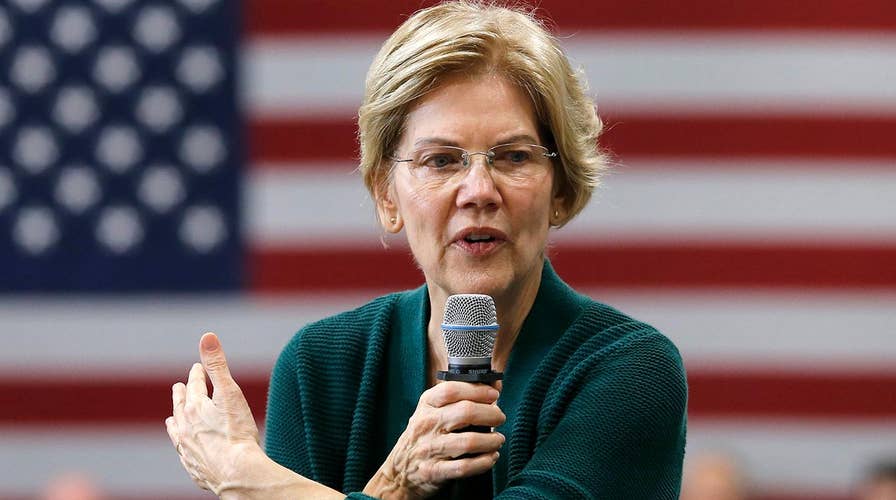A nonpartisan academic study concludes that Democratic presidential candidate Sen. Elizabeth Warren’s proposed "wealth tax" on the richest Americans would bring in at least $1 trillion less than the populist lawmaker from Massachusetts estimates.
Warren’s signature "wealth tax" – which she says would help pay for progressive plans including universal child care, free tuition at public universities and colleges and her government-run "Medicare-for-all" health care system – would place a 2 percent tax on those worth $50 million or more and 6 percent on those worth more than $1 billion.
KEY DEMOCRAT INDICATES WARREN'S WEALTH TAX WOULD FACE HIGH HURDLES IN CONGRESS
A University of Pennsylvania Penn Wharton Budget Model – which offers nonpartisan analysis of public policy proposals – estimates, though, that Warren’s tax would raise between $2.3 trillion to $2.7 trillion over a decade. That’s as much as $1.4 trillion less than the Warren campaign’s estimates. The analysis was released on Thursday.
It also concludes that the new taxes would cause the economy to contract between 0.9 percent and 2.1 percent by 2050 -- depending on how the new revenue is spent. The model says the new tax would reduce "private capital formation" enough to drive the U.S. economy's average wage down between 0.9 percent and 2.3 percent, even affecting households not rich enough to qualify for the tax.
Warren disputed the findings.
"They didn’t actually analyze my wealth tax. They changed provisions and then analyzed something else," Warren told Fox News after delivering an economic address in New Hampshire.
"Before I ever rolled the wealth tax out, I had independent economists look at it and we got evaluation from economists, from tax experts, about how much wealth it would produce and I’m very confident about our numbers on this," she highlighted.
Warren has defended her tax, arguing that the wealthy don't pay their fair share.
The plan – popular with many Democratic presidential primary voters – has for months been a key part of the senator’s stump speech on the campaign trail.
"I understand there are people who want to throw up a lot of dust around this because they don’t really have any comeback to that central question and that is why aren’t we asking folks at the very top to pitch in a couple of cents so that we can actually invest in opportunity in everyone else," Warren told Fox News.
The Associated Press contributed to this report.




